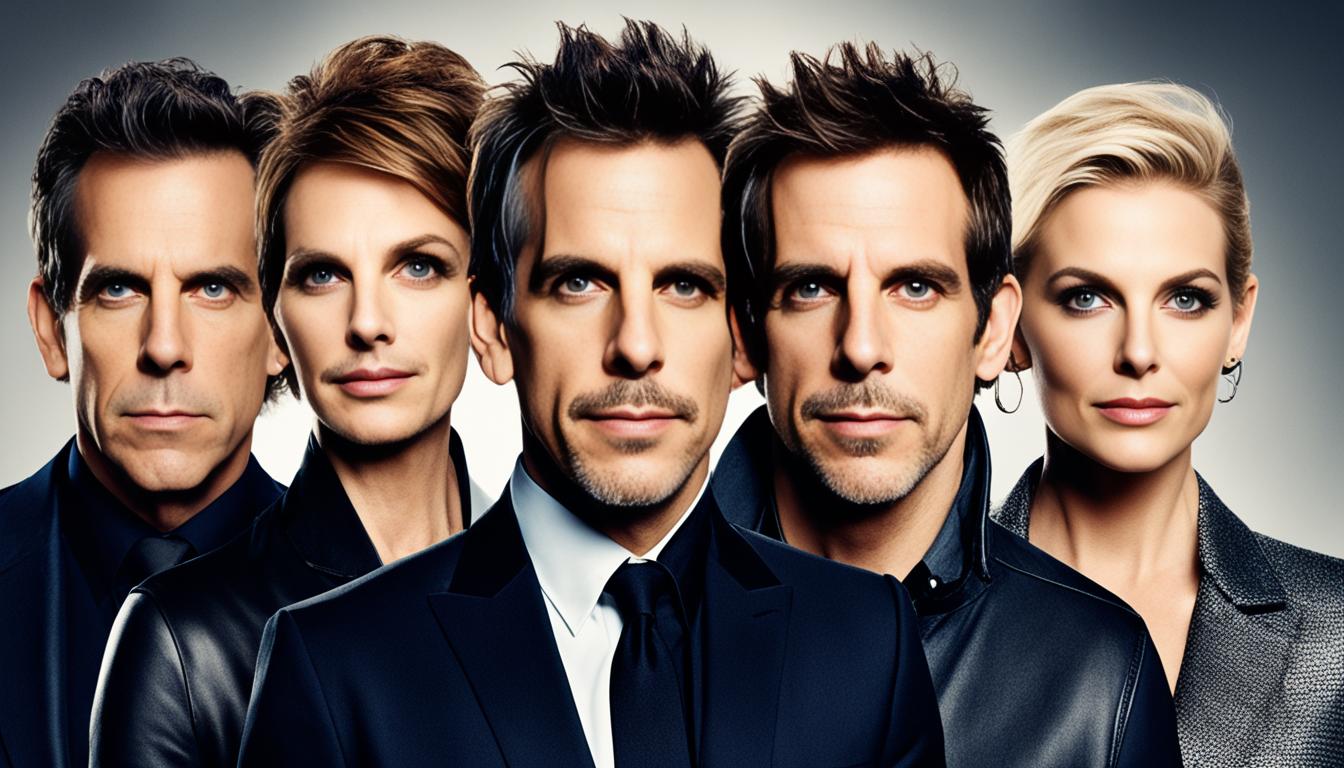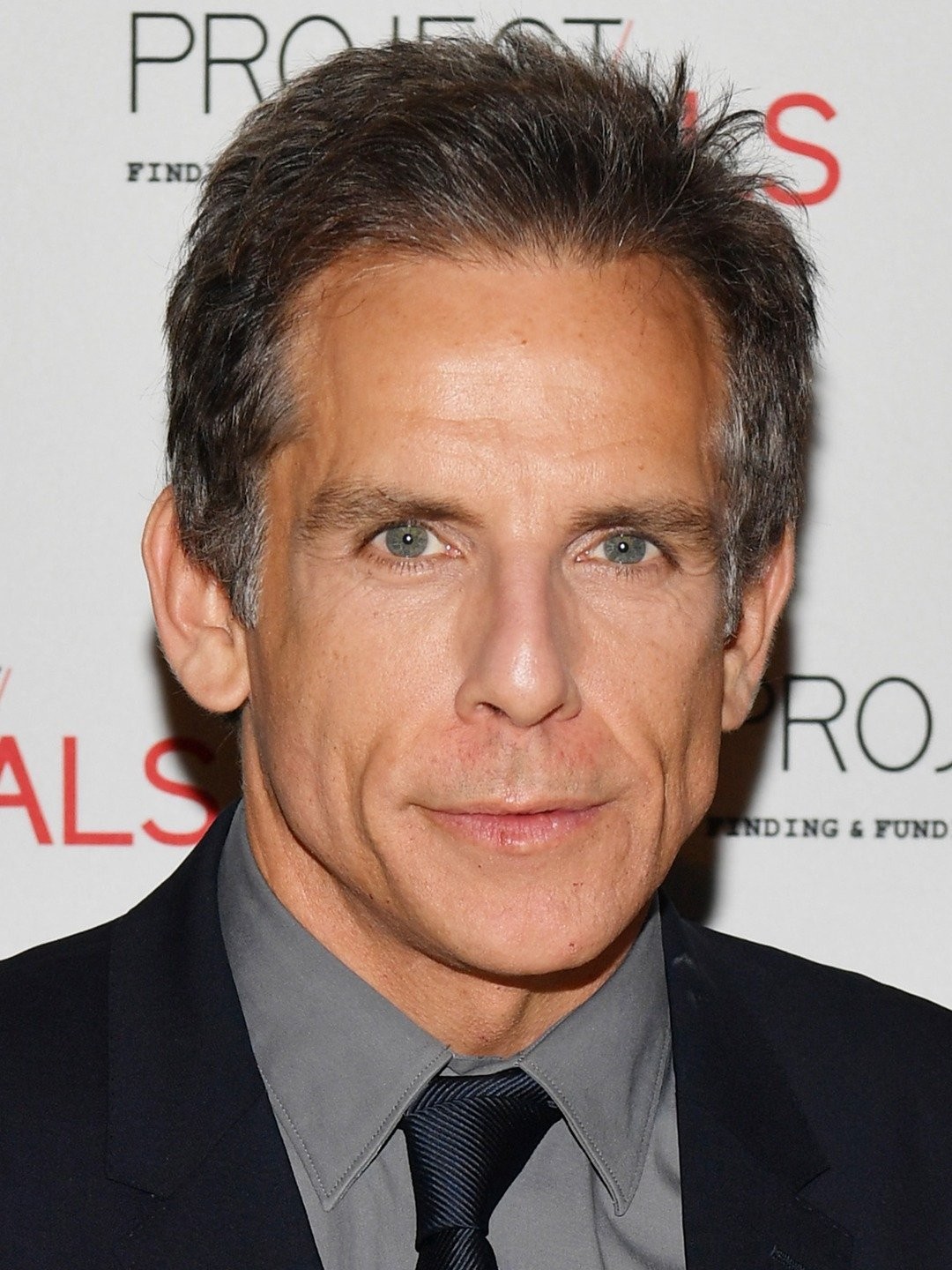Ben Stiller has always been a Hollywood icon, but did you know his life journey involves something far more personal than just his acting career? The star of films like "Zoolander" and "The Secret Life of Walter Mitty" has openly discussed his connection to Noonan Syndrome. For those unfamiliar, Noonan Syndrome is a genetic disorder that affects physical and developmental characteristics. Let's dive into the story of Ben Stiller and how this condition plays a role in his life. Prepare to be amazed by his resilience and the way he's handled this journey.
When we think about Ben Stiller, the first thing that comes to mind is his incredible talent as an actor, director, and comedian. But there's a deeper side to his story that many people don't know. Ben has openly talked about his family's connection to Noonan Syndrome, a genetic condition that affects about 1 in 2,000 people worldwide. This isn't just a medical topic—it's a personal one for Stiller, and it gives us a unique perspective on his life beyond the silver screen.
Why is this important? Understanding Ben Stiller's relationship with Noonan Syndrome sheds light on how genetics, family history, and personal experiences shape who we are. It also highlights the importance of awareness and acceptance of genetic conditions in our society. So, buckle up as we explore this fascinating journey together.
Read also:Wayne Dyer Wife Death The Story Behind Her Passing And Its Impact
Who Is Ben Stiller? A Quick Bio
Before we dive into the details of Noonan Syndrome, let's take a moment to get to know Ben Stiller. Born on November 30, 1965, in New York City, Ben Stiller grew up surrounded by creativity. Both his parents were entertainers—his mother, Anne Meara, was a comedienne, and his father, Jerry Stiller, was a well-known actor. This environment laid the foundation for his future in show business.
Key Facts About Ben Stiller
Here’s a quick rundown of Ben Stiller’s life:
- Full Name: Benjamin Edward Stiller
- Date of Birth: November 30, 1965
- Place of Birth: New York City, New York
- Profession: Actor, Director, Producer, Comedian
- Notable Works: "Zoolander," "Tropic Thunder," "The Secret Life of Walter Mitty"
- Family Connections: Son of Anne Meara and Jerry Stiller
What Is Noonan Syndrome?
Noonan Syndrome (NS) is a genetic disorder that affects physical development and health. It's caused by mutations in several genes, including PTPN11, SOS1, RAF1, and others. People with Noonan Syndrome often have distinctive facial features, short stature, heart defects, and developmental delays. While it can vary in severity, it affects both males and females equally.
Some common characteristics of Noonan Syndrome include:
- Wide-set eyes
- Low-set ears
- Heart abnormalities, such as pulmonic stenosis
- Growth issues, leading to shorter height
- Learning difficulties in some cases
Ben Stiller and Noonan Syndrome: The Family Connection
Ben Stiller's connection to Noonan Syndrome isn't directly through him—it's through his family. His younger brother, Drew Stiller, was diagnosed with the condition. This diagnosis had a profound impact on Ben's life, shaping his perspective on family, health, and resilience. Drew's experience with Noonan Syndrome inspired Ben to become more involved in raising awareness about genetic disorders.
Ben has spoken openly about how his brother's condition influenced his understanding of genetics and health. It also fueled his passion for supporting families affected by similar challenges. Through his work and advocacy, Ben Stiller shows us the power of empathy and compassion.
Read also:Ari Kystya Erome The Rising Star Of Modernday Creativity
How Noonan Syndrome Affects Families
Noonan Syndrome doesn't just affect the individual—it impacts the entire family. Parents may face challenges in ensuring their child receives proper medical care and support. Siblings, like Ben, often play a crucial role in providing emotional support and understanding. This familial bond is what makes stories like Ben's so inspiring.
The Science Behind Noonan Syndrome
To truly understand Noonan Syndrome, we need to look at the science behind it. The condition is caused by mutations in specific genes involved in a signaling pathway called RAS/MAPK. This pathway controls cell growth and division, and mutations can disrupt normal development. Researchers estimate that about 50% of cases are due to mutations in the PTPN11 gene.
While there's no cure for Noonan Syndrome, early intervention can make a significant difference. Treatments focus on managing symptoms and improving quality of life. This might include:
- Regular cardiac monitoring
- Growth hormone therapy
- Speech and occupational therapy
- Special education services
Raising Awareness: Ben Stiller's Advocacy
Ben Stiller's involvement in raising awareness about Noonan Syndrome is commendable. Through interviews, documentaries, and social media, he's used his platform to educate others about this condition. His efforts have helped reduce stigma and promote understanding.
One of the most impactful ways Ben has contributed is by sharing personal stories. By talking about his brother Drew and their family's journey, he humanizes the experience of living with Noonan Syndrome. This personal touch resonates with audiences and encourages them to learn more.
Why Awareness Matters
Awareness campaigns are vital for conditions like Noonan Syndrome because they help families feel less isolated. They also encourage research and development of new treatments. When celebrities like Ben Stiller use their voices, they amplify these messages and bring attention to important causes.
Living with Noonan Syndrome: Challenges and Triumphs
Life with Noonan Syndrome isn't without its challenges. Individuals with the condition may face health issues, social difficulties, and educational barriers. However, many people with Noonan Syndrome lead fulfilling lives, proving that the condition doesn't define them.
Some of the challenges include:
- Managing chronic health conditions
- Dealing with societal misconceptions
- Accessing appropriate educational resources
But there are also triumphs. Many individuals with Noonan Syndrome excel in their chosen fields, build strong relationships, and inspire others with their resilience. These stories remind us of the strength and determination that can overcome any obstacle.
Research and Advances in Noonan Syndrome
Thanks to ongoing research, our understanding of Noonan Syndrome continues to grow. Scientists are exploring new treatments and therapies that could improve outcomes for those affected. For example, advancements in gene therapy hold promise for addressing the root causes of the condition.
Organizations like the Noonan Syndrome Foundation and the National Organization for Rare Disorders (NORD) play a critical role in funding research and supporting families. Their work ensures that individuals with Noonan Syndrome have access to the latest information and resources.
Key Statistics About Noonan Syndrome
Here are some important statistics to keep in mind:
- Approximately 1 in 2,000 people have Noonan Syndrome
- 50% of cases are caused by mutations in the PTPN11 gene
- Heart defects occur in about 50-80% of individuals with NS
- Early intervention significantly improves outcomes
How You Can Help
If you're moved by Ben Stiller's story and the challenges faced by those with Noonan Syndrome, there are ways you can help. Supporting organizations dedicated to research and advocacy is a great start. You can also spread awareness by sharing information with your community.
Here are some actionable steps:
- Donate to reputable organizations like the Noonan Syndrome Foundation
- Volunteer your time to support families affected by NS
- Advocate for better healthcare policies for rare diseases
- Educate yourself and others about genetic conditions
Conclusion: Embracing Diversity and Resilience
Ben Stiller's connection to Noonan Syndrome highlights the importance of embracing diversity and resilience. Through his advocacy and personal experiences, he reminds us that every individual deserves understanding and support. By learning about conditions like Noonan Syndrome, we contribute to a more inclusive and compassionate world.
So, what can you do next? Share this article with your friends and family. Leave a comment below sharing your thoughts or experiences. Together, we can make a difference in the lives of those affected by Noonan Syndrome and other rare conditions.
Table of Contents
Who Is Ben Stiller? A Quick Bio
Ben Stiller and Noonan Syndrome: The Family Connection
How Noonan Syndrome Affects Families
The Science Behind Noonan Syndrome
Raising Awareness: Ben Stiller's Advocacy
Living with Noonan Syndrome: Challenges and Triumphs
Research and Advances in Noonan Syndrome
Key Statistics About Noonan Syndrome
Conclusion: Embracing Diversity and Resilience



